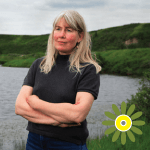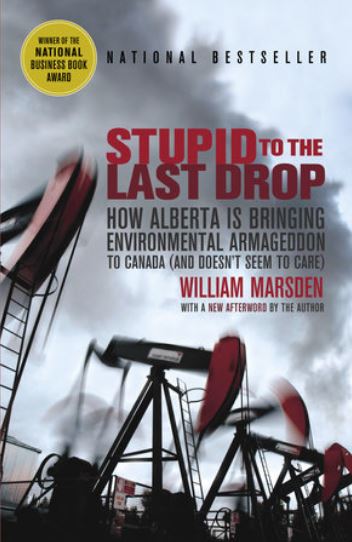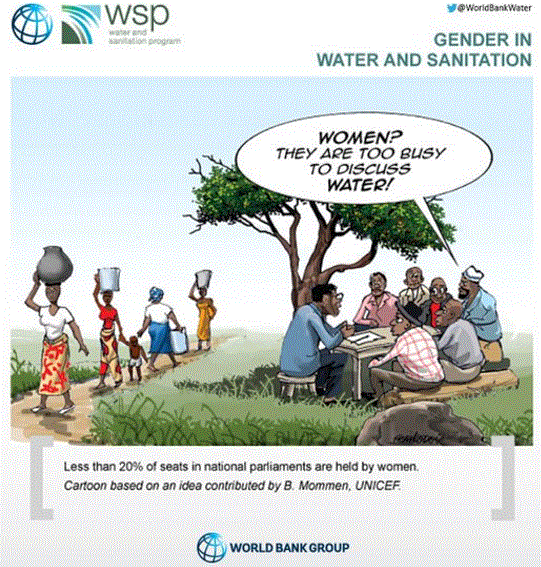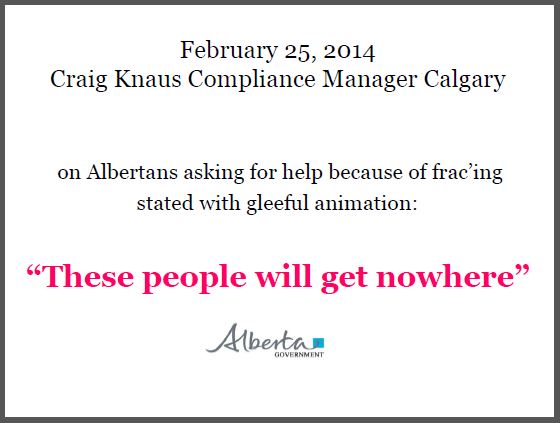
Earth is running on empty. Water scarcity is becoming ever more dire, with frac’ers invading the most water scarce places.
Most humans, notably male, corporate, legal and or political, don’t care and keep over producing babies.
Every new human born ensures more fracs. Every new Canadian born ensures I won’t get safe water. And most don’t care. Or, are too stupid to care.

Exclusive: South Africa circles back to shale gas as power crisis drags by Wendell Roelf, May 18, 2023, Reuters
Summary
New Karoo shale gas blocks to be auctioned
Shell's acreage part of bid round
Active petroleum systems with oil, gas seeps
Farmers, activists fret over frackingCAPE TOWN, May 18 (Reuters) – South Africa will auction at least 10 new onshore blocks for shale gas exploration in the environmentally sensitive Karoo region, a government official told Reuters, as the country eyes alternative energy sources to ease its worst-ever power crisis.
South Africa’s first competitive auction for oil and gas resources, expected in 2024 or 2025 once legislation making provision for the bid round is passed, includes acreage once held by Shell (SHEL.L).
“We are potentially looking at a minimum of about 10 shale gas blocks in the Karoo that will be released through competitive bidding,” Bongani Sayidini, chief operating officer at the Petroleum Agency of South Africa (PASA) said.
PASA estimates the Karoo Basin holds around 209 trillion cubic feet (tcf) of technically recoverable shale gas resources, although a 2017 study by geologists at University of Johannesburg said this was probably 13 tcf, the lower end of estimates ranging between 13 tcf to 390 tcf.![]() Always the same, they dangle gross over estimates to feed human greed. Works every time. Then, they scratch their corrupt heads and wonder at the mess left behind as judges grant company after company escape via bankruptcy.
Always the same, they dangle gross over estimates to feed human greed. Works every time. Then, they scratch their corrupt heads and wonder at the mess left behind as judges grant company after company escape via bankruptcy.![]()
Even 5 tcf would be enough for a 1,000 megawatt (MW) to 2,000 MW gas-fired power plant to supply electricity for up to 30 years, the Academy of Sciences of South Africa said in its Karoo shale gas action plan released last year.
It isn’t clear how the cost would compare to existing coal fire power stations or the ever-cheaper wind and solar energies that are gradually replacing them.
Fracking in the Karoo Basin, a vast area covering more than half of South Africa’s land surface, has been shelved for a decade because of resistance from environmental activists and farmers, and regulatory uncertainty.
Shell’s 90,000 square kms is available after the oil major early last year withdrew an application to explore, Sayidini said.
Confirming the withdrawal, a Shell spokesperson said they are focussing upstream investment on fewer basins that align with global strategy and where Shell has competitive advantages.
New shale blocks offered will be smaller to increase participation, Sayidini said. It could take a decade or longer for the first gas output, if sufficient resources are found.
RISK TO ENVIRONMENT
Falcon Oil & Gas (FO.V) and Bundu Gas and Oil Exploration, a majority-owned unit of Australia’s Challenger Exploration (CEL.AX), retained rights to apply for exploration licenses, Sayidini said.
“We believe this is the place to be with the best potential to make it commercially viable,” Philip O’Quigley, Falcon’s CEO told Reuters of the southern part of the basin, where the company is seeking a license.
Some 2,500 soil samples from the Karoo were sent overseas for analysis, PASA officials said.
“Those confirmed gas and even oil seepages, so we now believe there might even be potential for oil in the Karoo,” Sayidini said.
Activists and farmers worried about air quality, soil degradation and water use in a parched, semi-arid region remain sceptical.
“The enormous risk it poses to the environment cannot be understated,” said Jonathan Deal, founder of Treasure the Karoo Action Group, a non-profit organization specifically established to oppose fracking in the area.
… Oil companies have suggested trucking or piping it in, although this might prove prohibitively expensive. Others propose water used for drilling and fracking being recovered and re-used, although it is unclear how viable that is.![]() It’s not and industry and gov’ts know it’s not. They just keep spinning that, to con communities into letting them frac. Reuse requires massive clean up of the acidic toxic water costing masses of money which oil and gas companies hate to spend. They want it for free and prefer to steal water from humans living in their frac fields like Encana/Ovintiv did to me. And, their polluted water harms equipment and wells, is dangerous to workers, the environment and communities, even after they try to clean it up. Even rape & pillage Caveman Frac Crazy Canada’s national energy regulator warned about this back in 2009. Encana boasted of doing this in NEBC, but the company’s project exploded, injuring a worker.
It’s not and industry and gov’ts know it’s not. They just keep spinning that, to con communities into letting them frac. Reuse requires massive clean up of the acidic toxic water costing masses of money which oil and gas companies hate to spend. They want it for free and prefer to steal water from humans living in their frac fields like Encana/Ovintiv did to me. And, their polluted water harms equipment and wells, is dangerous to workers, the environment and communities, even after they try to clean it up. Even rape & pillage Caveman Frac Crazy Canada’s national energy regulator warned about this back in 2009. Encana boasted of doing this in NEBC, but the company’s project exploded, injuring a worker.![]()
New fracking regulations released for public comment last year are to be finalised in August, the department of environmental affairs said.
But farmers — fearing competition over scarce water that may become depleted or polluted — think the fracking risk is too great.
Brent McNamara, chief executive of Agri-Eastern Cape, said he feared it would damage agricultural productivity.

Refer also to:
2008:

2011: South African Women March Against Fracking
South Africans celebrate not one, but two Women’s Days every year. First there’s International Women’s Day in March and then there’s the country’s own National Women’s Day on the 9th of August. The latter commemorates the day in 1956 when 20,000 women from all over South Africa marched on the Union Buildings, the administrative seat of government in Pretoria, to protest against the Apartheid state’s repressive pass laws. All of August is officially designated as Women’s Month.
In Cape Town, a number of individuals and environmental organizations, led by local photographer Kian Erikson, decided to organize a protest march against “fracking” on National Women’s Day.
Fracking, or more formally hydraulic fracturing, is a water-hungry, environmentally dangerous and increasingly controversial method for extracting a type of natural gas, called shale gas, from underground layers of rock. …
Earlier this year, the South African government declared a moratorium on fracking, but activists have maintained steady pressure on authorities to ban the technology permanently. The Gaswalk protest march on this year’s National Women’s Day was part of that agenda.
Besides being a general anti-fracking action, Gaswalk drew specific attention to the very important, yet often overlooked connections between environmental degradation and the lives of women.
Since it seriously endangers the availability of sufficient clean water in an already critically water-stressed country, fracking presents an enormous threat to women and children. Not only because they are among the most vulnerable sections of society, but also because they are commonly responsible for providing families with potable water and fresh food grown with such water. This is especially the case for women living in the rural areas that will bear the brunt of fracking activities.
Rural South African women expend considerable efforts and resources to secure clean water for their families. Fracking will make this already difficult task much harder.
When the courageous women marched on the Union Buildings in 1956, they sang a protest song especially composed for the occasion. Warning the racist government of the day not to interfere with women’s rights, “Wathint’Abafazi Wathint’imbokodo!” loosely translates to “When you strike a woman, you strike a rock!”
In the case of the Gaswalk march, participants emphasized the fact that if fracking is allowed in South Africa, it will directly and detrimentally affect women’s lives and that the country’s women will have none of it. When fracking strikes a woman, it strikes a rock!
According to Muna Lakhani of the environmental NGO Earthlife Africa,
“Hydraulic fracturing […] directly threatens the quality of our air and water, and thereby the health and wellbeing of our people. Resource extraction has made corporations and an elite rich, but local communities remain poor and are most at risk from the environmental destruction caused by fossil fuel extraction.”While Marina Louw of the Climate Justice Campaign asks “can we really afford to jeopardise the health of future generations in a part of the country that, due to climate change, is likely to become even more arid in coming decades?”
Erikson points out that,
“Worldwide, more and more people are calling for a global ban on fracking, as the threat to clean air and water supplies, and the devastating environmental and social cost, is becoming evident. We are calling on our government to ban fracking, in order to protect our vulnerable water resources and the quality of the air we breathe.” ...
… A group of energy companies — including Royal Dutch Shell and South Africa’s SASOL — have leased rights to a huge shale field containing underground gas, promising economic development and energy security.
… The field is located in the semi-desert Karoo region, home to the native Khoisan people and unique biodiversity. Some fear that the industry will pollute and deplete already scarce water supplies in the region.
“Karoo comes from a Khoisan word for ‘thirsty land’,” Lewis Pugh, founder of Treasure the Karoo Action Group, told Yale Environment 360. “Even if the chemicals were safe, and they are not, there just isn’t enough water to spare. Water is going to be a source of conflict. Do you think the Karoo farmers are going to let Shell show up and destroy their farms? They’re going to grab their rifles.”
Shell officials claim that the chemicals used are biodegradable, and say the company has created thousands of jobs.![]() Pffft. Just look to the frac’ers in Canada, notably Encana/Ovintiv promising the same, while decimating jobs via automation to feed greed of upper management, investors and CEOs
Pffft. Just look to the frac’ers in Canada, notably Encana/Ovintiv promising the same, while decimating jobs via automation to feed greed of upper management, investors and CEOs![]() They say the industry promises billions in revenue, much-needed jobs and energy security for all, according to Yale Environment 360.
They say the industry promises billions in revenue, much-needed jobs and energy security for all, according to Yale Environment 360.
But the benefits cited by the industry would be short-term, Pugh argues, as many wells would only work for about five years, leaving permanent environmental problems.
… “The bottom line is that the poor people in the Karoo have not been engaged by the Shell environmental management plan,” said Muna Lakhani, volunteer branch coordinator in Cape Town for Earthlife Africa. “Shell has made it clear they’ll only consider compensation if it can be proved that the contamination came from their wells. Think of someone poor. How on Earth will they be able get justice?”
2011: FRACKING THE KAROO THE PEOPLE SAY NO!
“We are not against responsible exploration or extraction; we are against Russian roulette.”
2011: Environmentalists, farmers rejoice as Cabinet puts brakes on Karoo fracking
2011: Special Investigation Cameos of the Karoo: A journey into the heartland
… A Soekor investigation in 1967, undertaken by Port Elizabeth drilling consultant and ex-Soekor employee, Andre Els, revealed evidence that a drilling fluid spill can, and did, emerge almost 40 km’s from the drill site in just 30 days.
2012: Fracking will leave ‘giant toilet bowl’
A proportion (25% to 100%) of the water used in hydraulic fracturing is not recovered, and consequently this water is lost permanently to re-use, which differs from some other water uses in which water can be recovered and processed for re-use.
2013: Synergy Alberta hits S Africa! Shell dishing out ‘Free lunches’ to frac the Karoo
2013: Jonathan Deal Receives Goldman Environmental Prize for his work protecting the Karoo from Fracing 3:31 Min. narrated by Robert Redford
I think in terms stopping the advent of fracking in this country, it became very clear to us that the stronger way to attack this would be through the courts. Our constitution guarantees the right for every single person in this country to live in an environment that is not harmful to their health and well being, and it provides for the protection of the environment for future generations.![]() Canadians do not have that right, nor do we have the right to water. Steve Harper made sure of it serving his good buddy then Encana CEO Gwyn Morgan. Canada ensures water for frac’ers, mostly foreign-owned, enhanced oil recovery and mining, etc.
Canadians do not have that right, nor do we have the right to water. Steve Harper made sure of it serving his good buddy then Encana CEO Gwyn Morgan. Canada ensures water for frac’ers, mostly foreign-owned, enhanced oil recovery and mining, etc.![]()
2014: Synergy Alberta: ‘Free lunches’ for fracking the Karoo ![]() But, sorry, not a drop to drink for anyone, and no baby formula either, frac’ers get it all and then some.
But, sorry, not a drop to drink for anyone, and no baby formula either, frac’ers get it all and then some.![]()
2014:

2014: Fracking is depleting water supplies in America’s driest areas, report shows, From Texas to California, drilling for oil and gas is using billions of gallons of water in the country’s most drought-prone areas![]() Frac’ers doing same in Canada and Australia and and and.
Frac’ers doing same in Canada and Australia and and and.![]()
2016: Water in Karoo not enough to support fracking ![]() Shell planned to pipeline water from the ocean many miles away, that’s how stupid frac’ers and their enablers are.
Shell planned to pipeline water from the ocean many miles away, that’s how stupid frac’ers and their enablers are.![]()
“Our water from the Karoo is from under the ground and if one of those aquifers is polluted by a fracking operation or a mistake however well intentioned, there’s no Plan B. You can’t buy a new aquifer or flush it out.”
![]() And worse, when companies frac and contaminate aquifers like Encana/Ovintiv did to my community, they kept frac’ing and refrac’ing the fresh water zones on hundreds of wells around us, complete with cover-up, bullying, law violations and blessings from regulators, courts and politicos.
And worse, when companies frac and contaminate aquifers like Encana/Ovintiv did to my community, they kept frac’ing and refrac’ing the fresh water zones on hundreds of wells around us, complete with cover-up, bullying, law violations and blessings from regulators, courts and politicos.![]()
2016: Karoo fracking to begin in 12 months – govt
2017: South Africa: Government approves fracking in the Karoo
In the middle of the longest-running drought in more than a thousand years, Colorado energy companies diverted rising volumes of the state’s freshwater resources for fracking, a new analysis shows.
Colorado operators doubled their use of high-quality water to prepare wells for fracking over the last 10 years, with diminishing returns on oil production, the nonprofit group FracTracker Alliance reported earlier this month. Average volumes of water used per well quadrupled over that time, the analysis found. …
Ferrar found that fracking operators’ freshwater consumption rose from about 5 billion gallons in 2013 to more than 10 billion gallons last year and increased from an average of 2.7 million gallons per individual well to 10.9 million gallons during the same period. Injecting more and more water into wells did little to boost oil production.
But most importantly, Ferrar said, the data show that Colorado’s operators have generated enough wastewater to supply fracking operations without having to draw on the state’s precious freshwater resources. …

***
The rich and powerful just never quit abusing women, kids, earth and other species. And most often for stupid, selfish reasons like frac’ing.
Unforgivable.
